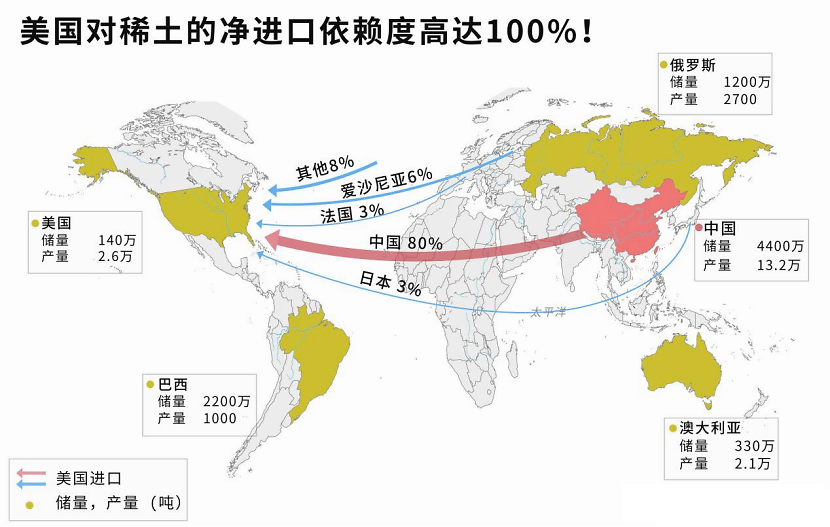Rare earth has the reputation of "omnipotent land". It is an indispensable scarce resource in many cutting-edge fields such as new energy, aerospace, semiconductor and so on. As the world's largest rare earth country, China has a high voice. According to official data, China exported 3737.2 tons of rare earth in April, down 22.9% from March.
With China's influence in the rare earth industry, the United States, Japan and other countries worry that once China's rare earth exports decrease, the global supply may be affected to varying degrees. According to the latest report on May 18, the UK's company HYPROMAG is planning to recycle rare earth magnets from discarded electronic parts such as old computer hard disks.
Once the project is successfully implemented, it will not only contribute to environmental protection, but also become part of the UK's establishment of its own rare earth supply system. You know, at the beginning of this month, the country was exploring how to establish a national reserve system of rare earth metals, so as to guarantee the local rare earth supply and reduce its dependence on China's rare earth.
Pensana, a rare earth supplier in the UK, has also started to develop and establish a supply chain for rare earth metals. It will spend US $125 million to build a new sustainable rare earth separation plant. Paul Atherley, the company's chairman, said the rare earth processing plant is expected to become not only the first large-scale new separation facility in more than 10 years, but also one of the only three major producers in the world (except China).
In addition to the United Kingdom, the United States, Japan, the European Union and other economies also plan to build their own rare earth production. A report of the London Polar Research and Policy Initiative (PRPI) pointed out that the United States, the United Kingdom, Australia and other five alliance countries should consider cooperating with Greenland, which is rich in rare earth reserves, to reduce the risk of rare earth "off supply".
According to incomplete statistics, up to now, the United Kingdom, Australia and Canada have obtained 41 mining licenses in Greenland, accounting for more than 60%. However, China's enterprises have already carried out rare earth distribution in the island in advance through investment and other means. China's leading rare earth enterprise, Shenghe Resources, won no more than 60% of the assets of a large rare earth mine in southern Greenland in 2016.
Post time: May-27-2021

